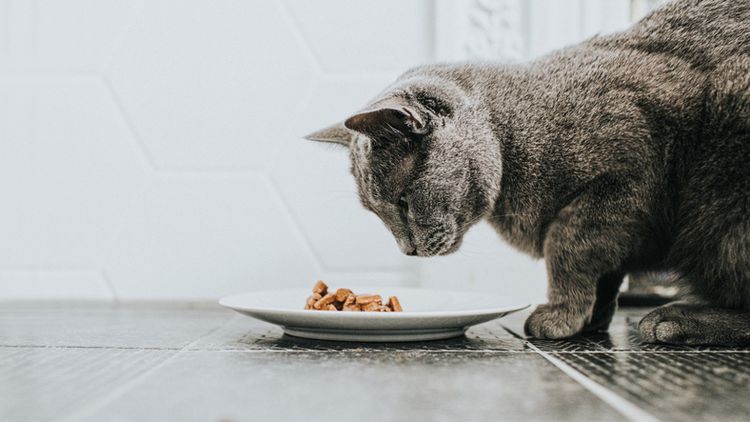What to Know About Byproducts in Cat Food

Unfortunately, interpreting pet food labels has become more and more difficult in recent years. There is also a huge amount of misinformation about pet food, both online and in public opinion. One topic that is often discussed is that of “byproducts” in pet food.
There is a persistent myth amongst cat owners that animal byproducts are unhealthy ingredients in cat food. Many have been told that they are of low nutritional value or are fillers.
However, animal byproducts are not fillers and can provide high quality nutrition for cats. It is also untrue that inedible parts of the animal, such as hooves, hair, horns, or feathers, are used in cat food as byproducts.
What Exactly Are Byproducts in Cat Food?
Animal byproducts are simply the parts of food animals, such as cattle or pigs, not typically used in the human food chain. The American Association of Feed Control Officials (AAFCO) defines byproducts as “secondary products produced in addition to the principal product.” This doesn’t imply that byproducts are unsafe or lack nutrition, simply that they aren’t part of the original primary products from that animal.
AAFCO goes on to say that “Many raw commodities, when processed, result in a primary product for human consumption and secondary products mostly (but not exclusively) for animal consumption. Using primary animal and plant products for humans and their related byproduct materials for animals is a common practice.”
In canned cat food, byproducts are typically organ meat from the liver, kidneys, lungs, and spleen. When a cat kills prey in the wild, these organs are the first thing the cat consumes and are highly nutritious.
In kibble, the most common byproduct is a meal. Meals are made from muscles, organs, and bone and are cooked to eliminate the possibility of bacterial contamination. The product has the water removed and is separated into protein and fat. The meals are then added to pet food appropriately to provide precisely balanced nutritional profiles.
Are byproducts safe for my cat to eat?
Yes, animal byproducts used in cat food are safe. All byproducts used in pet food are inspected by the United States Department of Agriculture (USDA) and must meet the standards set by the agency. These standards ensure that no diseased or disabled animals are used in pet food and that there is no dangerous bacterial contamination.
The byproducts as fillers myth
In reality, there is no exact definition, according to AAFCO, for the term “filler”. However, it most typically refers to products used in pet food to add fiber or bulk to the food. Animal byproducts are actually very nutritious and provide protein, fat, vitamins, and minerals. Feeding a human
grade meat product is not nutritionally superior to a byproduct.
The thing to remember is that cats, when hunting, choose to eat the prey’s organs first, both for the taste and the nutritional value. It is natural and healthy for them, even if it seems distasteful to us.
Why do food manufacturers use byproducts instead of
muscle meat?
Though not as appealing to humans for their dinner, byproducts such as liver, spleen, and heart are nutritionally superior to muscle meat. Organ meats provide much higher levels of nutrients like vitamins, minerals, and protein.
Cats require a balanced diet with a correct calcium to phosphorus ratio and essential amino acids such as taurine. Muscle meat alone lacks many essential nutrients, but they can be provided by the use of byproducts. Muscle meat on its own often lacks appropriate levels of fats, protein, vitamin A, and calcium.
Discussing cat food with your veterinarian
Sadly, there are many cat foods on the market that use misleading label claims and marketing to appeal to pet parents. Some high-priced foods with amazing marketing departments easily convince consumers to feed their diet when in reality it may be a substandard food. Looking at the ingredient list and making sure the food was formulated by a board-certified veterinary nutritionist and has been feed trial tested are the first steps.
There are many other things to consider when choosing the right diet for your personal cat, including age, lifestyle, health issues, and allergies. The best resource for pet parents when choosing a food for their cat is their veterinarian. Your cat’s doctor has years of formal education, as well as real-world experience with cats and nutrition. They also know your specific cat and its health needs.